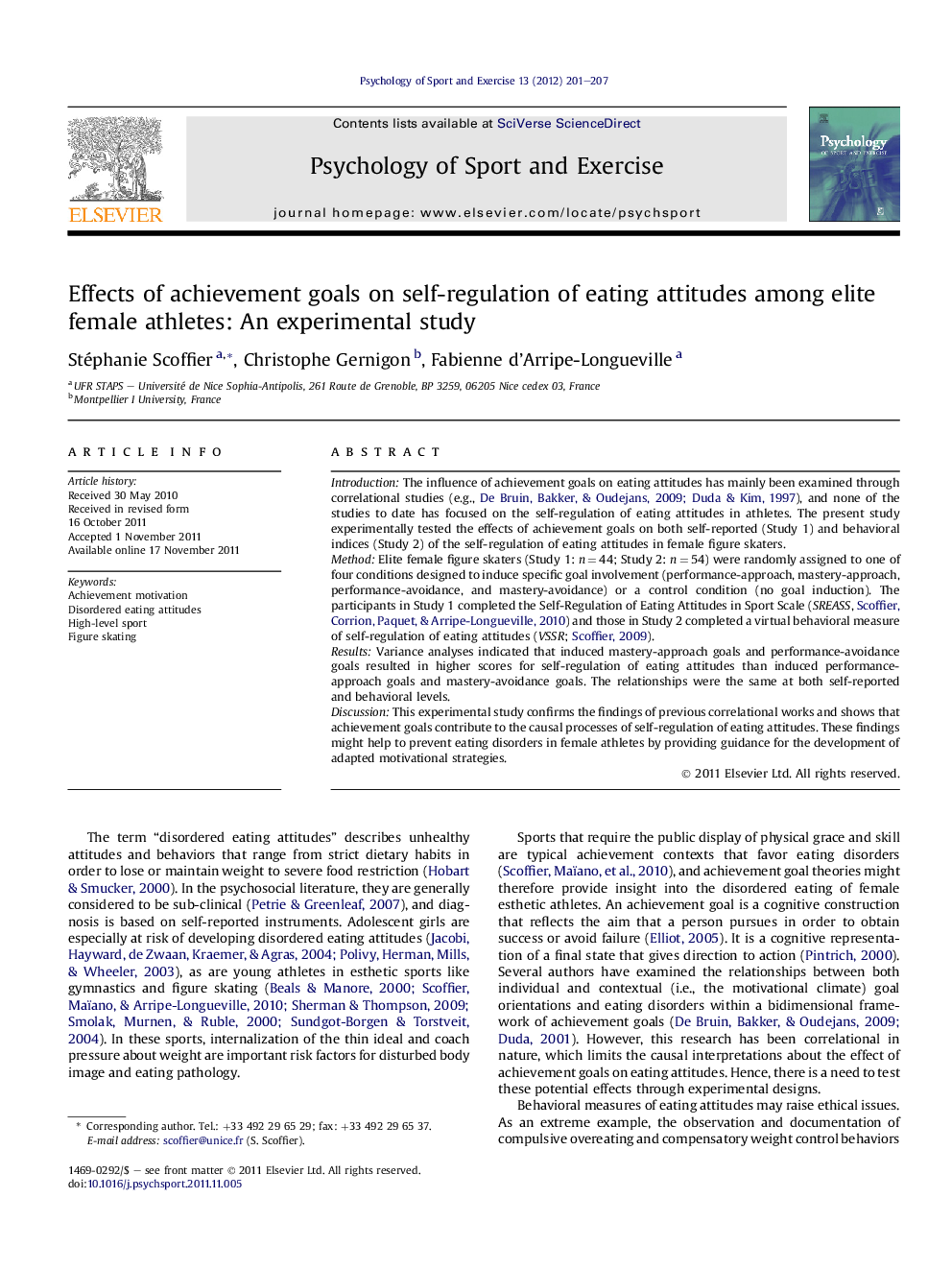| Article ID | Journal | Published Year | Pages | File Type |
|---|---|---|---|---|
| 894598 | Psychology of Sport and Exercise | 2012 | 7 Pages |
IntroductionThe influence of achievement goals on eating attitudes has mainly been examined through correlational studies (e.g., De Bruin et al., 2009 and Duda and Kim, 1997), and none of the studies to date has focused on the self-regulation of eating attitudes in athletes. The present study experimentally tested the effects of achievement goals on both self-reported (Study 1) and behavioral indices (Study 2) of the self-regulation of eating attitudes in female figure skaters.MethodElite female figure skaters (Study 1: n = 44; Study 2: n = 54) were randomly assigned to one of four conditions designed to induce specific goal involvement (performance-approach, mastery-approach, performance-avoidance, and mastery-avoidance) or a control condition (no goal induction). The participants in Study 1 completed the Self-Regulation of Eating Attitudes in Sport Scale (SREASS, Scoffier, Corrion, Paquet, & Arripe-Longueville, 2010) and those in Study 2 completed a virtual behavioral measure of self-regulation of eating attitudes (VSSR; Scoffier, 2009).ResultsVariance analyses indicated that induced mastery-approach goals and performance-avoidance goals resulted in higher scores for self-regulation of eating attitudes than induced performance-approach goals and mastery-avoidance goals. The relationships were the same at both self-reported and behavioral levels.DiscussionThis experimental study confirms the findings of previous correlational works and shows that achievement goals contribute to the causal processes of self-regulation of eating attitudes. These findings might help to prevent eating disorders in female athletes by providing guidance for the development of adapted motivational strategies.
►Effects of achievement goals on indices of self-regulation of eating attitudes (SREA). ►MAp goals and PAv goals are related to higher scores for SREA. ►PAp goals and MAv goals are related to lower scores for SREA. ►The relationships were the same at both self-reported and behavioral levels.
